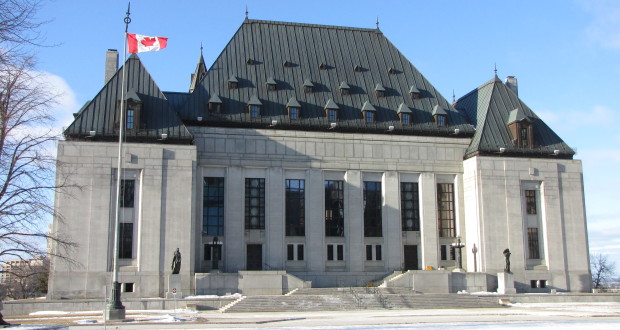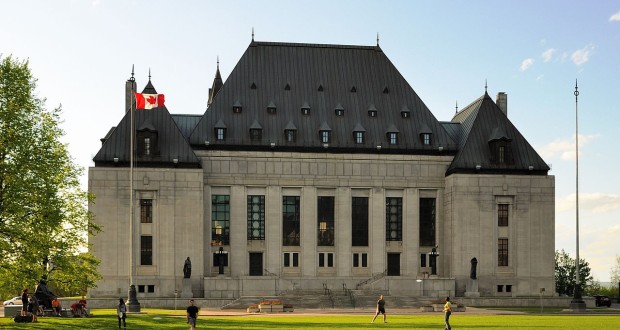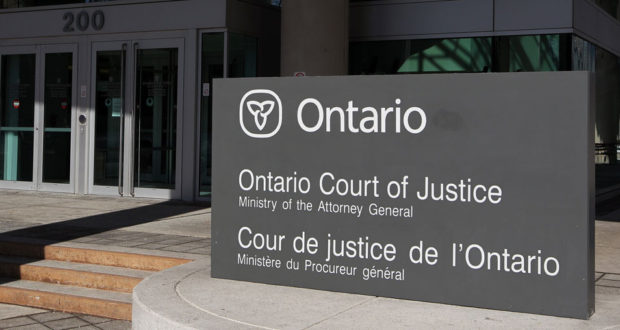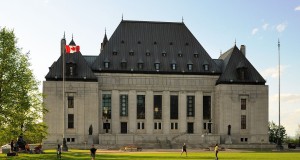This morning, Justice William Horkins of the Ontario Court of Justice acquitted Jian Ghomeshi of four charges of sexual assault and a fifth charge of choking. Social media immediately erupted in a firestorm of #believethevictims and #believeallsurvivors. Many insults were also directed toward the judge, who, by all accounts, behaved impeccably during the trial. Indeed, he made an evidentiary ruling near the ...
Read More »Case Commentary
Galati v. Harper: The Rule of Law is not an “Empty Vessel”
The Federal Court of Appeal’s February 8, 2016 decision in Galati v. Harper is notable for several reasons. First, it notes that fundamental legal rules surrounding costs are not jettisoned in the constitutional context. Second, it recognizes that the constitutional guarantee of the “rule of law”, though seemingly broad in the abstract, has a defined meaning and cannot be used ...
Read More »Justice Miller’s First Major Decision May Surprise His Critics
In December, I questioned the common thought that lawyers, scholars and judges who promote judicial restraint and the rule of law should be called “conservative”. I cited Justice Grant Huscroft of the Ontario Court of Appeal simply applying accepted common law principles to lead to what appeared to be a “progressive” result in the employment law case of Michela v. ...
Read More »Misreading Carter v. Canada
In its report released in December, the Provincial-Territorial Expert Advisory Group On Physician-Assisted Dying recommends that assisted suicide and euthanasia be publicly funded and available for the non-terminally ill, the mentally ill, and for minors. Their Report says that its recommendations “were developed in response to the Supreme Court’s decision in Carter.” The Report claims, inaccurately, that the Court “did ...
Read More »“Clear and Definitive”: The Offence of Bestiality and the Rules of Statutory Interpretation
Last month, the Supreme Court of Canada heard oral arguments in the case R. v. D.L.W. The issue for appeal is not exactly garden variety. The Supreme Court has been asked to determine whether the offence of “bestiality” in the Criminal Code requires penetration. Background The facts are not in dispute and are disturbing to say the least. The accused respondent ...
Read More »A “Progressive” Result from the Rule of Law
Lawyers, scholars and judges who promote judicial restraint and the rule of law are frequently called “conservative.” Justice Grant Huscroft of the Ontario Court of Appeal is often cited as an example of a judge whose judicial philosophy is a thinly veiled guise for his conservative predispositions. But is this really the case? In his recent decision in Michela v. ...
Read More »Judicial Restraint Lives to Fight Another Day
If laws are supposed to be legislated by the legislature, and interpreted by the judiciary, what happens when the judiciary is of the view that the legislature is dropping the ball? This philosophical conundrum was implicitly considered by two different levels of court in Ontario, with different results. In Ernst & Young Inc. v. Chartis Insurance Co. of Canada, [2014] ...
Read More »The Hard Truth – “the contract said what it said”
MacQuarrie v. National Bank Life Insurance Company is a noteworthy decision for those interested in the “textualist” debate – namely, whether words reduced to writing, whether it be in the form of a policy of insurance, a statute, a commercial contract, or otherwise – should be interpreted according to their plain and ordinary meaning. In MacQuarrie, an insured sought payment ...
Read More »Constitutional Challenge to Building Code Act “Doomed to Fail”
Tuesday’s Ontario Court of Appeal decision in R. v. Goebel properly disposed of a claim that raised an important issue, but was deeply flawed from a legal perspective. Justice Epstein’s reasons helpfully noted that s. 7 of the Charter does not include property rights, and an infringement of the right to “security of the person” requires a real connection to ...
Read More »Good Law in the Face of Hard Facts
In a recent decision of the Ontario Court of Appeal, R. v. Jacques, Justice Lauwers correctly applied the law despite his understandable reservations about the outcome. Mr. Jacques had been convicted before the Provincial Offences Court on two counts of driving without automobile insurance and one count of driving with a suspended license. His convictions were upheld on appeal before the Ontario ...
Read More » Advocates for the Rule of Law
Advocates for the Rule of Law


















